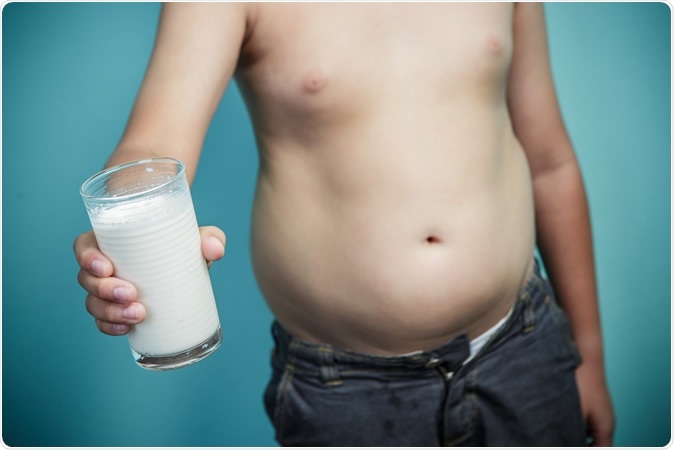Drinking milk has long been linked to aging, but the exact connection is not well understood. Is drinking milk prevent premature aging, or if there is a type of milk you should consume? A new study may have the key answer to this long-standing question.
A researcher has found that milk can either speed up aging or prevent it, depending on the type consumed.
The study, published in the journal Oxidative Medicine and Cellular Longevity, sheds light on milk and its effect on aging. The researcher recommends swapping the typical 2-percent milk for lower-fat 1-percent milk, which has a noticeable effect on a person’s aging rate.

Image Credit: DONOT6_STUDIO / Shutterstock
The researcher conducted the study by determining connections between milk intake frequency, milk fat consumption, and telomere length, which is an index of biological aging. To arrive at their findings, he recruited more than 5,800 adults in the U.S. and assessed their beverage habits.
The results of the study show that drinking 1-percent rather than 2-percent milk accounts for about 4.5 years of less aging in adults. Those who drink low-fat milk or skimmed milk may have slowed aging, compared to those who drink high-fat milk.
“It was surprising how strong the difference was. If you're going to drink high-fat milk, you should be aware that doing so is predictive of or related to some significant consequences,” Dr. Larry Tucker, Brigham Young University exercise science professor, said.
He investigated the link between telomere length and both milk intake frequency, those who drink daily versus those who drink weekly or less, and milk fat content, such as 1 percent versus 2 percent milk.
Telomere length and aging
Telomeres are an important part of human cells and can impact how cells age. They are nucleotide endcaps of human chromosomes and act as a biological clock. The older the people become, the shorter their telomeres.
In the study, the researcher found that those who drink low-fat milk had longer telomeres compared to those who did not drink any cow’s milk at all. Hence, it may be the milk fat, and not the milk itself, that causes health problems.
Further, for every 1 percent increase in milk fat consumed, telomeres were 69 base pairs shorter in the adults who participated in the study, translating into more than 4 years in additional biological aging. Meanwhile, the telomeres in those who drink full-fat milk were 145 base pairs shorter than those who consumed low-fat or non-fat milk.
There are other factors that have been linked to shortened telomeres, including stress, cigarette smoking, obesity, living a sedentary lifestyle, and poor diet.
In a nutshell, the key finding is that those who drink high-fat milk have shorter telomeres, making them age faster than those drinking low-fat milk, who have shorter telomeres, warding off premature aging.
New guidelines accurate
“Milk is probably the most controversial food in our country. If someone asked me to put together a presentation on the value of drinking milk, I could put together a 1-hour presentation that would knock your socks off. You'd think, 'Whoa, everybody should be drinking more milk.' If someone said to do the opposite, I could also do that. At the very least, the findings of this study are definitely worth pondering. Maybe there's something here that requires a little more attention,” Tucker said.
The researcher believes that the new recommendation of the latest Dietary Guidelines for Americans recommending drinking low-fat milk instead of high-fat milk is accurate and beneficial.
The goal of the study is to find a way to prevent, delay or even reverse telomere shortening. In the meantime, while scientists are looking for the answer, it’s important to start eating healthy.
Journal reference:
Larry A. Tucker, Milk Fat Intake and Telomere Length in U.S. Women and Men: The Role of the Milk Fat Fraction, Volume 2019 https://doi.org/10.1155/2019/1574021